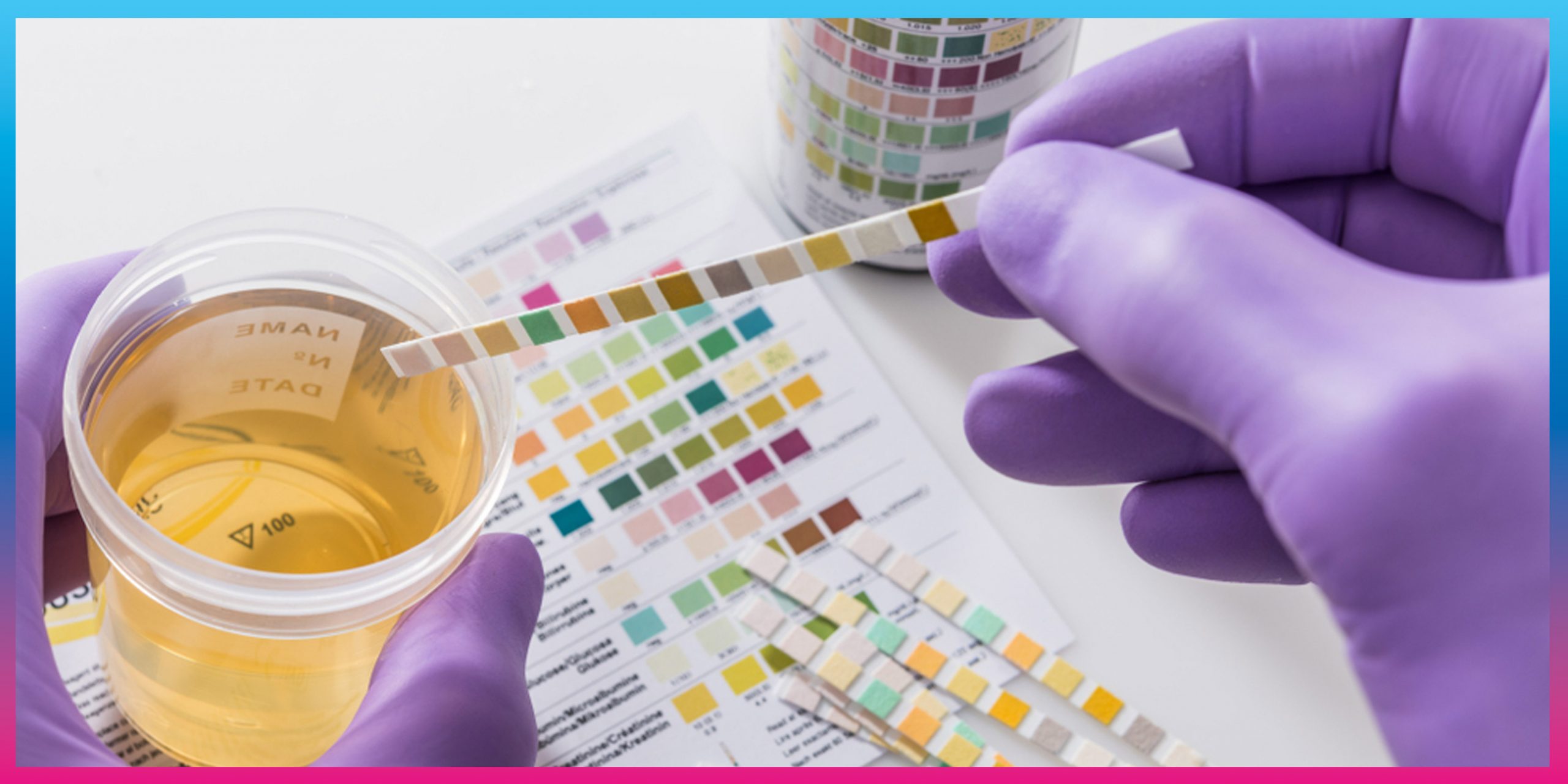Understanding Urine Glucose Test: Purpose, Procedure, and Results

Introduction
Glucose is usually not present in the urine. A urine glucose test is a screening test that detects the presence or absence of glucose in the urine. If you have excess sugar in the urine, your doctor may prescribe additional blood glucose tests like a fasting, post-prandial, oral glucose tolerance test or an HbA1c to confirm if you have diabetes.
It is essential to understand that an increase in urine glucose levels does not always mean you have a medical condition. Some medications, vitamin C and eating a large meal before the test may affect your results.
What is the purpose of a urine glucose test?
A urine glucose test is recommended to determine if your blood sugar levels are within the normal range. It is useful to screen diabetes type 1 and type 2. While a urine test is easier to perform than a blood test, it may not be as accurate. For this reason, urine glucose tests are done if blood glucose tests cannot be done.
Why is it important to monitor glucose levels in urine?
Excess glucose in your body can contribute to many health problems and lead to several health complications. Your kidneys eliminate extra glucose via urine if the blood sugar levels increase above the normal range. Urine tests assist in monitoring blood glucose levels in people with diabetes, prediabetes, and at risk of diabetes.
How does a urine glucose test help in managing diabetes?
Urine glucose tests are less reliable than blood tests. They usually detect very high blood sugar levels. This is because the body only gets rid of sugar when blood sugar levels are very high (above the renal threshold). So, if your urine glucose test is positive, you must consult your doctor and begin treatment to help manage your diabetes.
How is a urine glucose test performed?
You will need to give a urine sample for a urine glucose test. The urine must be collected in a small, sterile container. The test can be performed at home (using dipsticks) or in a diagnostic laboratory.
What are the steps involved in collecting a urine sample for glucose testing?
A few instructions to follow for adequate sample collection are:
- Wash your hands with soap and water. Dry them.
- Open the container without touching the inside.
- Clean the genital area. Males must wipe the entire head of the penis and pull back the foreskin. Females must separate the labia (vaginal folds) and wipe the insides front to back.
- Urine into the toilet for a few seconds. Now stop the flow and collect the urine (called midstream urine) in the container. Avoid touching the container to the body.
- Collect the amount of urine as your doctor prescribes using the markings on the container.
- Finish urinating into the toilet.
- Put the cap on the container and deposit as instructed.
Is fasting required before a urine glucose test?
You do not need to fast for a urine glucose test.
Can I perform a urine glucose test at home?
You can perform a urine glucose test at home. You can collect a urine sample even 30-60 mins after you last went to the toilet. However, asking your doctor the best time to do a urine glucose test is important. After collecting the urine sample, dip the test strip into it. After around two minutes, the colour pads on the strip will show your result.
How long does it take to get the results of a urine glucose test?
The results of laboratory urine glucose tests are available within a few hours. At-home urine glucose tests give you results within a few minutes.
Are there any specific instructions to follow before taking a urine glucose test?
You don’t need special instructions or preparations before taking a urine glucose test. Since some medicines and supplements may affect your results, you must let your doctor know about the same. Do not stop taking any medications without your doctor’s consent.
What do the different levels of glucose in urine indicate?
Glucose is usually not found in urine. The normal glucose range in the urine is between 0 to 0.8 mmol/L (or 0 to 15 mg/dL).
When the urine glucose levels are higher than normal, it may indicate one of the following conditions:
- Diabetes
- Gestational diabetes during pregnancy
- Renal glycosuria (a condition in which glucose is released from the kidneys into the urine even if the individual’s blood glucose levels are normal)
Can a urine glucose test be used as a standalone diagnostic tool for diabetes?
A urine glucose test is only a screening test, and the presence of urine glucose does not mean you have diabetes.
Don’t struggle alone & get the expert care you deserve

What are the possible reasons for a false-positive or false-negative result in a urine glucose test?
Urine glucose tests were used earlier as a diagnostic tool for diabetes. However, they are less accurate than blood glucose tests, as many things can give false positive or negative results. The urine glucose test indicates your blood glucose levels from a few hours before.
Other factors that can give a false positive urine glucose test include medications like SGLT inhibitors (a class of sugar-lowering drugs) and supplements like vitamin C. Sometimes, the at-home urine glucose test also gives a wrong reading as the light in which the strip is checked.
How frequently should I perform a urine glucose test to monitor my diabetes?
You must undergo a urine test at least once a year—a normal routine urine test checks for glucose. If your urine glucose test is positive, your doctor may recommend further investigations and prescribe a fasting and postprandial blood sugar test.
How does a urine glucose test differ from a blood glucose test?
| Parameter | Blood Glucose Levels | Urine Glucose Levels |
| Sample collected | Blood | urine |
| Normal values | 80 mg/dL to 140 mg/dL | 0 mg/dL to 15 mg/dL |
| Prediabetes | 140 mg/dL to 199 mg/dL | Slight traces of glucose in the urine |
| Diabetes | Over 200 mg/dL | Over 25 mg/dL |
Some sugar in the blood is essential for a normal, healthy lifestyle. When the blood sugar levels rise above 200 mg/dL and remain there consistently, it is diagnosed as diabetes.
When the urine glucose levels are over 25 mg/dL, it is termed glycosuria (the presence of glucose in urine).
The glucose concentration above which significant glycosuria occurs is called the renal threshold for glucose. The value of the renal threshold varies, and deviations can occur from the normally accepted 180 mg/dL.
It is important to understand that glucose in the urine does not always indicate diabetes. When a urine glucose test is performed before a blood test, it may be a warning to bring one’s blood sugar level under control. However, there are chances that your urine glucose test does not correspond to a blood glucose test.
Which test is more accurate for monitoring diabetes: urine or blood glucose test?
A blood glucose test is more accurate for monitoring diabetes than a urine glucose test. This is because a urine glucose test can give false positive results due to causes other than diabetes.
Can a urine glucose test replace the need for regular blood glucose monitoring?
Urine glucose tests were considered a norm earlier. However, due to their poor accuracy, they are only considered screening tests today. A urine glucose test cannot replace blood glucose monitoring tests.
Are there any dietary or medication restrictions before taking a urine glucose test?
Here are a few tips to follow before a urine glucose test:
- Avoid eating a large meal before submitting your urine sample
- Inform your doctor about medications and supplements you are taking, as some of these can give you a false positive or false negative test.
What should I do if I consistently have high or low glucose levels in my urine?
If you have consistently high urine glucose levels, it may be indicative of diabetes or a renal condition. In this case, your doctor may advise blood glucose tests to confirm the diagnosis. Having little or no glucose in your urine is normal.
Can factors like dehydration or urinary tract infections affect urine glucose test results?
Dehydration can cause hyperglycemia or high blood sugar levels. This happens because the water content of blood reduces, and the blood sugar becomes more concentrated.
Dehydration and urinary tract infections (UTIs) can increase in people with high blood sugar levels. However, they do not influence urine glucose test results.
FitterTake!
If you have received a positive urine glucose test during your routine checkup, we highly recommend undergoing blood glucose monitoring. If you have diabetes and are looking for the best way to bring your numbers under control, sign up for Fitterfly’s Diabetes Care Program, curated by expert diabetologists, nutritionists, physiotherapists and success coaches. Speak to us today!
Don’t struggle alone & get the expert care you deserve






















